Kenya Safari Travel Tips and Advice
Whether you are traveling to Kenya for business, pleasure or study, the best way to ensure a carefree and relaxing trip is to prevent problems before they happen. The more you learn about passports, visas, customs, immunizations, and other travel basics, the less likely you are to have difficulties during your travel in Kenya. Kenya, just like other African safari destinations, provides a somewhat different safari experience. In order to assist you with the planning of your Kenya safari, we have provided an extensive list of traveling tips to help your journey go as smooth as possible. Here is what you need to know as you plan to visit Kenya, the home of African Safari...
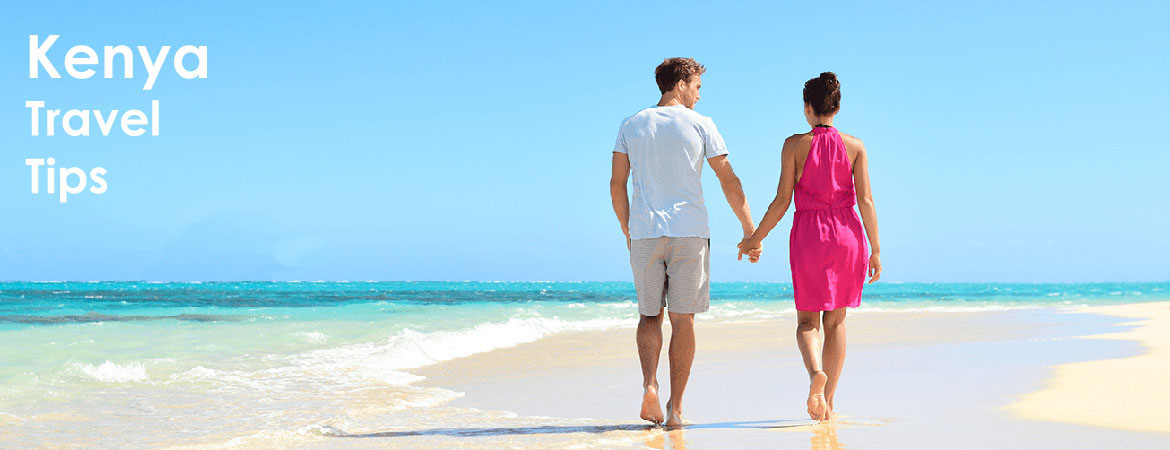
1. Passport and Visa Information
Your passport needs to be valid for at least six (6) months after your journey ends, and should have a minimum of four (4) blank visa pages for entry and exit stamps. A tourist visa is required for most foreign passport holders for entry into Kenya. There are currently two options available as outlined below. We recommend an electronic visa.
Electronic Visa (eVisa): To apply for an eVisa, visit evisa.go.ke/evisa.html. The current fee for a single-entry visa is USD $51 (subject to change without notice). A tourist visa is only valid for 90 days from the date of issuance, so do not apply for your Kenya visa more than 90 days prior to departure. If the visa application asks you to provide an email address for your host tour operator in Kenya, please use africhoice@africhoice.com Read and follow all instructions carefully to ensure a smooth arrival in Kenya. You may be required to upload documents (e.g. passport photo or copy of your passport information page) to complete the eVisa process.
Visa on Arrival: The current fee for a single-entry visa is USD $51 (subject to change without notice) and must be paid in cash in U.S. dollars. Kenya is presently offering visas on arrival as they transition towards the eVisa program; however, this option can be suspended at any time without notice. A single-entry eVisa for Kenya allows you to enter, exit and re-enter the country after visiting either Tanzania or Uganda, without having to purchase a multiple-entry visa. Note: Kenya is currently waiving visa requirements for children age 15 or younger. Children in this age group need only present a valid passport upon arrival.
2. Required / Compulsory Vaccinations
A yellow fever vaccination is only required to enter Kenya and Tanzania if you are arriving from, or have transited through, a yellow fever-endemic area in South America or Africa–including East African countries such as Kenya, Tanzania and Uganda. As your itinerary includes visits to both Kenya and Tanzania, you may be asked to show proof of yellow fever vaccination when entering either country. The CDC and WHO each provide a current list of all affected countries. If vaccination for yellow fever is necessary, you must carry an International Certificate of Vaccination provided by your physician; you may be denied entry without it. If your physician advises against receiving the vaccination because of your personal medical history, he or she can provide you with the necessary documentation for the country/countries you are visiting.
3. Cash and Credit Cards
Both Kenya and Tanzania have cash-based economies. Cash transactions can be made in the local currency in each country. U.S. dollars are also widely accepted. Major credit cards are accepted but on limited basis though trend is changing fast, mainly in the largest shops, hotels and lodges. Access to ATM machines is available in large cities such as Nairobi, Arusha and Dar es Salaam, but limited in rural areas. Make sure you take large bills no older than Series 2006. Many places in Africa will not accept older bills than this, and many places will not accept $10, $5 and $1 bills at all. Also, to avoid carrying large amounts of cash try and use the ATM’s where possible – they’re widespread and accept credit cards and Plus cards. This will save you the anxiety of carrying large bundles of cash in your pockets. Typically, I suggest that a person pulls cash from an ATM at the airport on arrival, to ensure the best currency conversion rate. Keep some singles and fives on hand to tip: It goes a very long way in developing nations and best suits the following types of care-takers who work in service: Drivers, Hotel House-Keepers / Butlers, Tour Guides, Luggage Porters, Waiters and Bar Tenders.
4. Packing and Buggage Restrictions
On flights within East Africa, each passenger is limited to a maximum baggage weight of 33 pounds (15 kilograms). This includes the weight of purses and camera equipment in addition to regular luggage. Luggage restrictions are adhered to very strictly and passengers should pack their bags accordingly. Soft-sided luggage or duffels are preferable to hard luggage for storage on safari vehicles and also on aircraft used throughout East Africa. Dimensions should not exceed 23 inches (58 centimeters) long x 13 inches (33 centimeters) high x 10 inches (25 centimeters) wide. Regarding what to pack, choose comfortable and casual clothing in natural, "breathable" fabrics and versatile styles that can be layered, as temperatures may vary considerably in the course of the day. For game viewing, wear neutral colors (though not camouflage, which is illegal in most national parks and reserves). Black, navy or other dark colors tend to attract insects. Smart casual attire is appropriate for evenings. Formal clothing is not necessary. Please note: Laundry Service is available at most hotels, lodges and camps. Because some laundries in Africa do not accept any underclothing, be prepared to wash your own smalls. Laundry techniques may not be suitable for delicate and/or synthetic fabrics. Check costs and return times before using these services.
5. Be Careful - Plastic Bags Banned!
The governments of Kenya and Tanzania have implemented a ban on plastic bags. The ban applies to “carrier and flat bags,” primarily targeting bags from shops and grocery stores, but also extending to Ziploc bags, duty-free bags and bubble wrap. If tourists have those types of bags visible while in the airport, they are likely to be confiscated. Bags designed for multiple use, such as zippered cosmetic bags, are not included in the ban.
6. Is Kenya a Safe Safari Destination
In the cities, adhere to the following: Don't walk alone in apparently deserted areas, especially in and around the cities. It is preferable and usually more enjoyable to walk with company or in groups. Don't carry large sums of cash in your purse or pocket, or display expensive jewelry. Be aware of the possibility of pick-pockets and bag snatchers in crowded areas. Make photocopies of the first few pages of your passport, air ticket and other important travel documents. Keep this separate from the originals. Don't leave money or valuables in a hotel room. Most hotels offer safety deposit box service, and ensure that you have adequate insurance coverage before leaving home.
7. Are the Wildlife Areas Safe?
Always remember that while some animals have become accustomed to the presence of people they are still wild animals. Keep your distance. It is illegal to feed any animal, make excessive noise to attract their attention, or deviate from designated roads for that closer photograph. Never get out of your vehicle except at designated points. Close all windows and zippers when you leave your room or tent and spray it with insect repellant. The best way to get the most out of your safari is to take an active interest in everything going on around you, not just the number of species you can see in the shortest possible time. Ask all the questions you can think of and take reference books on not only wildlife but birds, insects and trees and read up about everything you see.
8. Major Health Hazards in Kenya
It is advisable to take out emergency medical insurance prior to entering Kenya. Bilharzia: The bilharzia parasite is found in many lakes, streams and rivers on the continent. Avoid swimming in them! Vaccinations for cholera, tetanus and yellow fever are advised. Malaria is virulent in Kenya. Take prophylactics two weeks before arrival and continue two weeks after leaving. Your chemist or doctor can advise you of the most suitable drug available as certain drugs lose their effectiveness. Tap water in the major towns is purified and perfectly safe to drink. In the more remote areas always boil it first, except if you’re staying at a lodge or hotel where drinking water is perfectly safe. Bottled water is readily available in the bigger towns.It is advisable to buy travel insurance covering accidents, illness or hospitalization for the period of your stay. Temporary membership in East African Flying Doctors' Service is also recommended for safari goers. Members who require emergency medical attention on safari are flown to Nairobi for the best medical attention available in the country.
9. Is Tap Water Safe To Drink in Kenya?
Drink only bottled water or from flasks of filtered and boiled water provided by most hotels and lodges.
10. Where Can I Buy Medicines in Kenya
Travellers should carry an adequate supply of medicines and first aid accessories with them as supplies especially away from major towns, are limited in Kenya. Most chemists in the major towns are open from 08h30 to 12h30 and 14h00 to 17h00. Monday to Friday and 08h00 to 13h00 on Saturdays. There are very few emergency chemists open after hours or Sundays.
11. How are the Accommodations in Kenya?
Standards and services range from up-market to tourist. Deluxe and first class hotels are found in the main cities and the resorts on the coastline of the country. Luxurious lodges are set in exotic locations, while comfortable tented camps are found in the main game parks.
12. How is Electricity Supply in Kenya?
Power supply is 220/240 volt 50 cycle. Plugs are usually 13-amp 3 pin square (British type). It is advisable to take a universal socket adaptor.
13. Can I access Banking Services in Kenya?
There are numerous banks in the major towns as well as many bureau de change. Hours of business vary from bank to bank, but most are open from 9h00 to 14h30, Mondays to Fridays, and 9h00 - 11h30 on Saturdays. Hotels and lodges change money outside these hours. Banking services are also available at Jomo Kenyatta International Airport in Nairobi and at Moi International Airport in Mombasa.
14. What is the Local Language in Kenya?
While the national language of Kenya is Kiswahili, English is the official language and is widely spoken and understood across East Africa.
15. What is Kenya's Local Currency?
Currency unit is the shilling, comprising 100 cents. Coins are in denominations of 5c, 10c, 50c and 1 and 5 shillings. Bank notes are in denominations of 5, 10, 2-0, 50, 100, 200, 500 and 1,000 shillings. Importation of foreign currency is unlimited and does not have to be declared on arrival. The importation and exportation of Kenyan currency, however, is illegal. It's best to come into the country with either Travellers checks or dollars or pounds which can be exchanged at any of the many Bureau de Change in the main Towns. If you are offered an exchange on the black market at the borders, exercise extreme caution as they are notorious for cheating you without you even realizing it. A VAT (tax currently 16% on most items, 2005) is levied and visitors cannot claim a refund on goods purchased.
16. Can I use my Credit Card in Kenya?
International credit cards are accepted by most restaurants, stores, hotels, lodges, camps, car rental firms, etc. However, many small shops in rural areas will not accept them. American Express, Thomas Cook, Visa and MasterCard Traveler's Checks are widely accepted.
17. How Much Should I Tip in Kenya?
A tip of 10% for good service is adequate. Service charges are frequently added and it is usual to tip a tour driver or guide at least US $10 a day.
18. When is the Best Time To Visit Kenya
Between December and mid-March, the days are sunny, hot and dry and the nights are cool. Best time for deep sea fishing and scuba diving is between August and March when the ocean is calm and water is clear. Rains fall mainly from mid-March to May and again in November. Although Kenya is considered to fall in the tropics, climate and temperature varies depending on altitude and proximity to the ocean. Coastal regions are hot and humid while the central plateaus are warm and dry, with cool nights.
19. What Type of Clothes Should I Pack?
Lightweight casual clothes can be worn all year round, with a jacket or sweater for early winter mornings and evenings. On safari keep clothes to a minimum and mostly of neutral coloring - khakis, browns and greens. A sunhat, sunglasses, sunscreen and insect repellant are a must. Bring a hat, good walking shoes and sun screen. Don't forget swim wear and binoculars. Some city restaurants and clubs have dress codes - casual jacket and tie for men, informal dresses for women. Most hotels and lodges will offer a laundry service. For low budget travelers there are no coin operated laundromats at all so consider drip dry clothing and be prepared for hand washing. In most places one could hire someone to do your washing. A standard first aid kit can come in handy in a place where ambulances are scarce and hospital services are scarce or don’t exist. That means bandages, antiseptics, prescription antibiotics, a pocketknife, sterile needles (some hospitals don’t have these), DEET, anti diarrheals and painkillers.
20. Any Tips on Photography in Kenya?
Kenya is considered to be a photographers dream destination. From panoramic scenery, wildlife and birds to people and vibrant ceremonies. Rich color and good low lighting conditions abound. It is considered rude to take pictures of people without asking them first. Maasai and Samburu warriors will expect payment for posing. Always bring plenty of film and video cassettes if you're bringing a camcorder as well as batteries - as these items are difficult to get in Kenya. Keep your cameras in a dust resistant, padded case and out of the midday sun. A 200mm (or longer) telephoto lens will prove very useful on safari, and an ultra violet filter and lens cap are strongly recommended. Please note that taking pictures of government and military personnel and installations is prohibited!
21. Can I Drive Myself in Kenya?
Driving is done on the left side of the road. Drivers require a valid license that must include a picture of the holder. A valid foreign license may be used for up to 90 days, but only after it has been endorsed by the Road Transport Office in Nairobi. If you’re doing a vehicle trip through Kenya it is a good idea to carry a range of tools and essential spares with you. Two spare wheels and a couple of spare tubes are a must due to the condition of the roads. Spare jerry cans of fuel and water, a tow rope, compressor, winch and a spotlight are useful items to have. Many of the villages along the main routes offer tire mending services at a very reasonable fee. Be very careful in towns and villages not to leave your vehicle open and unattended. People with little are easily tempted. You should have no problem sleeping outdoors in designated camping areas or remote places along the way, but get into the habit of locking things away before you go to sleep. Car rental companies are represented at the major airports and in the cities, as are taxis.
22. Is Air Transport Reliable in Kenya?
Jomo Kenyatta International Airport in Nairobi and Moi International Airport in Mombasa are main points of entry. Many charter services operate out of Nairobi's Wilson Airport. Regular services link Kisumu, Lamu, Malindi, Mombasa and Nairobi. Air Kenya, flies to Amboseli, Lamu, Masai Mara, Nyeri, Nanyuki and Samburu. Kenya Airways is the national airline. South African Airways links Johannesburg and Nairobi with regularly scheduled air services. A departure tax of U.S. $40 is levied when leaving the country (Please check whether it is included in your ticket).
23. Are there Customs Restrictions in Kenya?
All visitors must have a valid passport and are subject to clearance through customs. In addition, all non-Commonwealth citizens require a visa, to be obtained from Kenyan Missions abroad or at the post of entry. Personal effects, including cameras, binoculars and film are allowed into the country duty free.
24. Any Advice regarding Time Difference?
Throughout the year, Standard Time in Kenya is three hours ahead of Greenwich Mean Time, two hours ahead of Central European Winter Time, and eight hours ahead of Eastern Standard Winter Time in the U.S.
SEE ALSO: General Africa Travel Tips and Advice
Top 3 Tips To Remember!

Be Ready To Be Inspired by Africa!
Africa has her mysteries and even a wise man cannot understand them. But a wise man respects them!
Described in Karen Blixen own words, "There is something about safari life that makes you forget all your sorrows and feel as if you had drunk half a bottle of champagne - bubbling over with heartfelt gratitude for being alive!" Without doubt, nowhere in the world canadventure and leisure travel be so perfectly mixed and matched - Africa, full of adventure opportunities, bears the secret! Nothing but breathing the air of Africa, and actually walking through it, can communicate the indescribable sensations. I never knew of a morning in Africa when I woke up that I was not happy!
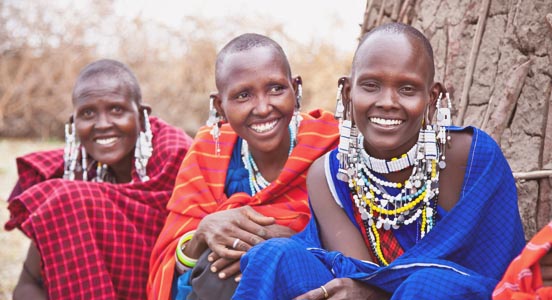
Be Ready To Meet Beautiful People!
Africa has it all - be prepared for beautiful people and happy children in a beautiful continent!
I’ve yet to see an unhappy child in Africa. I’m not saying that there aren’t unhappy kids in Africa, but the children I’ve come across in the villages, on the beaches, on the streets are always smiling, laughing, and full of joy. They mostly seem to get a kick out of any foreigner around! My favorite thing to do is make funny faces at them and they’re happy to reciprocate. Most of the African people are warm, friendly, and hospitable. We often found that they are just as interested as us as we are in them. Be prepared for beautiful people and happy children in a beautiful continent.

Be Ready To Take Home Sweet Memories
The only man I envy is the man who has not yet been to Africa – for he has so much to look forward to!
Africa, as we all know, is a continent with a huge variety of landscape, climate and culture! It is exciting, addictive and awe-inspiring. When you have had a taste of it, you will never want to leave. Visit Kenya, Tanzania and Zanzibar. The parks will include Amboseli National Park , Lake Naivasha, Masai Mara Game Reserve, Serengeti National Park, Ngorongoro Crater and Zanzibar Beach. Arrive open-minded and ready to experience new things! Things that create lasting memories. After two weeks in this African paradise you will leave with romantic safari memories that will last you a lifetime!
Proven EXCELLENCE through years of EXPERIENCE!
We are Africans. We Know Africa Better. We Love what we DO!
See Also: East Africa Travel Tips By Country
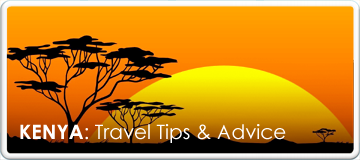
Kenya - The Home of African Safari
Kenya offers most stylish tourism infrastructure in East Africa. From the plains of the Masai Mara to the white sandy beaches of its coast, there is no place like Kenya for an African Safari holiday. Read More...>
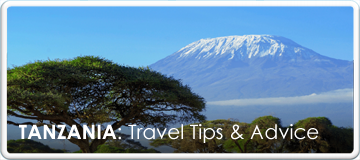
Tanzania - Land of Mt. Kilimanjaro
Tanzania is a breathtaking destination for a first-time safari and for experienced safari enthusiasts alike. The wildlife sanctuaries of Ngorongoro and the Serengeti remains unexploited. Read More...>
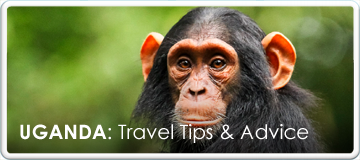
Uganda - Meet Gorillas in the Mist
Many people travel to Uganda to see the Mountain Gorillas that it is famed for. Often referred to as the Pearl of Africa, it is home to half of world's remaining population of gorillas. Read More...>